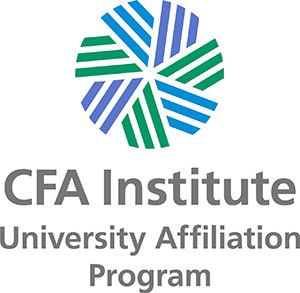Operations and Supply Chain Management
All organizations (including manufacturing and service oriented organizations) have an operations function. The operations function makes the company run by finding the most efficient ways to produce a product or to deliver a service. The complexity of the global supply chain demands that businesses deliver better quality products and services -- with the best customer service, in the fastest time, and with a high degree of customization. These expectations make the operations function not only important, but critical to achieving success.
People with an education and experience in this field can make a substantial difference in a company’s profitability. Operations managers need good analytical, problem solving, and behavioral management skills not only to diagnose problems and improve current operations systems, but also to communicate and gather support for the required changes.
Overview
Today’s world demands that businesses deliver better quality products and services--with the best customer service, in the fastest time, and with a high degree of customization. These expectations make the operations function not only important, but critical to achieving success. Companies that manufacture items (cars, computers, food products), companies that provide services (banks, airlines, hospitals), and other kinds of organizations (educational, governmental) all have processes and operations.
The Vision Statement for our Operations and Supply Chain Management Program is practical, timely, and strongly connected to strategic initiatives in Indiana and the region.
Operations and Supply Chain Management majors will possess the ability to model and solve real business problems using appropriate analytical tools and advanced technology, and to communicate those solutions to the decision maker. They will understand the operational issues facing organizations and the role of operations management among other functional areas, preparing them for positions in firms of all sizes in all industries. They will understand how the integration of all functions across a business leads to improvements in quality, efficiency, and productivity, and how a global approach to making operating decisions benefits the entire organization, leading to improved competitiveness.
Students who major in OSCM learn how all of the areas of business contribute to managing a company’s supply chain. They use the computer to analyze information and develop models that support decision making. They study operating systems and may choose to explore forecasting systems, process simulation, risk and decision analysis, and quality management. Some choose to diversify by adding a course in marketing research, management information systems, or technology.
Many OSCM students choose to complete one or more internships. These may be done for academic credit or simply for the experience they provide. All of the classes work closely with local businesses to provide real data and real problems for students to use in class.
If you think you might be interested in learning how to make organizations better by applying principles of operations, contact us. We'll be glad to help get you started!
Download
- OSCM Factsheet (PDF)
Contact Us
 |
Dr. Paul Schikora |
Join Us
Social Media
Connect with us
We value our business partners and take pride in the relationships we have formed with them.
Whether your interests are hiring our students, mentoring them, serving on one of our advisory boards, sponsoring or donating to our programs, providing speakers, or simply attending one of our events, we would like to hear from you.
See our Accreditation page for more details on these accreditations

See our Financial Planning Concentration page
![]()
See our Sales and Negotiations Center pages
Events
WCISBDC: Allyship Program
Pride in the Workplace
WCISBDC: Cybersecurity for Small Businesses
Wednesday, July 19, 2023
Scott MBA Virtual Info Session
Wednesday, July 19, 2023
Professional MBA in Westfield Info Session
Wednesday, July 19, 2023
WCISBDC - You Go Girl!
Sessions start Tuesday, August 1, 2023
WCISBDC: Pride Pitch
Friday, August 11, 2023
SCOB Student Picnic
Wednesday, August 30, 2023
Student Managed Investment Fund Consortium Conference
Thursday/Friday, October 5/6, 2023
Give to Blue Day
Wednesday, March 20, 2024
Scott College of Business Calendar
Scott College of Business Events
Indiana State University Calendar
WCISBDC Events: West Central Business Hub and ISBDC eCenterdirect



